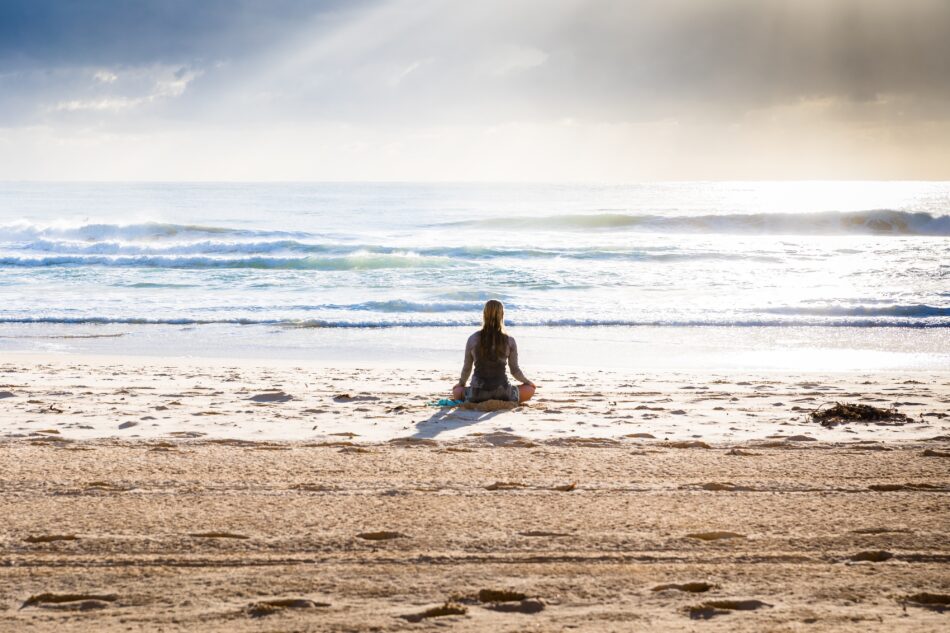Constant busyness, scattered focus, insufficient rest and exhaustion are, sadly, an integral part of our lives. According to a 2015 study, on average, people spent 2 hours and 28 minutes stressing every day. This is an astonishingly high number, but good news is stimulation overload and anxiety can be combatted such as by mediation. An ancient remedy for the stress of modern life, meditation helps us to develop strength, clarity and stability in our mind as well as to live in a less distracted, more wakeful and productive way. Meditation can be incredibly effective, but one must know how to go about it. Here are a few tips.
Designate a time each day to practice meditation
Like any skill, meditation requires repetition and practice to master. If possible, find a period of time each day during which you can relax and gradually learn to forget about the hustle and bustle of everyday life. Even two or three minutes of meditation a day can work wonders – but please remember that consistency, rather than quantity, is key. If you have decided to meditate every afternoon from, say, 4 p.m., but this means you have to work harder and drive faster from work, chances are the sessions will not be beneficial at all. Instead, you run the risk of your mind getting even more overburdened.
Find the right location
One does not need to be surrounded by snow-covered Himalayan mountaintops or immersed in the sound of tingsha bells to meditate effectively. All you really need is a place where you feel comfortable and where you won’t be interrupted. It’s usually a great idea to dim the lights and play some music – a song you like, meditation music or the Young Living Massage Soundtrack. Also, consider diffusing or directly inhaling meditation essential oils as these 100% natural aromatic extracts have a long-standing reputation for relieving anxiety and stress. After all smell is the only sense connected to the limbic lobe, the emotional control centre of the brain: by simply inhaling aromas, you can positively affect your emotions and mood. And while any essential oil that inspires feelings of calmness, centeredness and concentration can help, the following is a non-exhaustive list of the most popular oils for meditation and mindfulness rituals.
- Frankincense – an aromatic resin obtained from trees of the genus Boswellia, frankincense is said to cleanse the spirit, promote a sense of enlightenment, boost confidence as well as promote feelings of being mentally balanced and reduce stress and pain
- Myrrh – extracted from thorny tree species of the genus Commiphora, myrrh is reputed to cleanse the body’s cellular memory of negative thoughts and emotions as well as reduce stress and help with concentration
- Sandalwood – heavy, yellow, fine-grained and retaining its fragrance for decades, sandalwood is a class of woods from trees in the genus Santalum. Sandalwood is often cited as helping people to mend their emotional wounds, supporting feeling of being grounded, helping to focus on breathing, encouraging rest and supporting alertness
- Lavender – recognized as safe for human consumption and having been used in hospitals during World War I, lavender promotes the sense of relaxation, emotional stability, and mental clarity; inspires restful and quality sleep; and reduces anxiety, sadness, restlessness, and general emotional imbalance
Alternatively, you can try some of the blends meticulously formulated by Young Living to help you with anxiety and stress. These include Clarity, StressAway and InnerChild.
Focus on your breath
Deep breathing is the cornerstone of most relaxation practices. Even if your mind begins to wander, you should always be able to return to the breath to refocus yourself. Close your eyes and breathe in deeply through your nose, enjoying your body being filled with rejuvenating fresh air. It is very important to practice abdominal (aka diaphragmatic or belly) breathing during which your stomach can expand. Interestingly, all of us are born with the ability to fully engage the diaphragm to take deep, refreshing breaths but, sadly, as we get older, we get out of the habit and sometimes even lose this ability. This is because everything from the stresses of everyday life to the practice of “sucking in” the stomach for a trimmer waistline encourage us to gradually shift to shallower, less satisfying “chest breathing“.
Meditation is a way for nourishing and blossoming the divinity within you. Are you ready to quiet your mind and let the soul speak?



